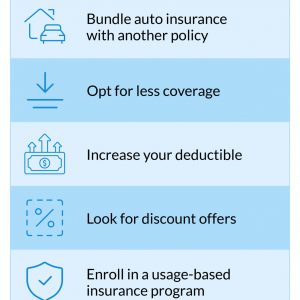“Secure your legacy with Estate Planning and Inheritance Taxation.”
Introduction
Estate planning and inheritance taxation are two important topics that should be considered when planning for the future. Estate planning involves the process of organizing and managing a person’s assets and liabilities in order to maximize their value and minimize taxes. Inheritance taxation is the taxation of assets that are passed on to heirs after the death of the owner. Estate planning and inheritance taxation are complex topics that require careful consideration and planning. It is important to understand the laws and regulations that govern these areas in order to ensure that your estate is managed in the most efficient and effective manner. With the right planning, you can ensure that your assets are passed on to your heirs in the most tax-efficient way possible.
How to Create an Estate Plan to Minimize Inheritance Tax Liability
Creating an estate plan to minimize inheritance tax liability is an important step for anyone who wishes to ensure that their assets are passed on to their heirs in the most efficient manner possible. An estate plan is a set of documents that outlines how a person’s assets should be distributed upon their death. It is important to create an estate plan that takes into account the current tax laws and regulations in order to minimize the amount of inheritance tax liability that will be incurred by the heirs.
The first step in creating an estate plan to minimize inheritance tax liability is to consult with a qualified estate planning attorney. An attorney can provide advice on the best way to structure the estate plan to minimize the amount of taxes that will be due upon the death of the estate owner. The attorney can also provide guidance on the types of trusts and other estate planning tools that can be used to reduce the amount of taxes that will be due.
The next step is to create a will. A will is a legal document that outlines how a person’s assets should be distributed upon their death. It is important to include provisions in the will that will minimize the amount of taxes that will be due upon the death of the estate owner. For example, the will can specify that certain assets should be transferred to a trust or other entity that is exempt from inheritance taxes.
Another important step in creating an estate plan to minimize inheritance tax liability is to create a trust. A trust is a legal entity that can be used to hold assets and manage them for the benefit of the beneficiaries. A trust can be used to transfer assets to the beneficiaries without incurring any taxes. The trust can also be used to provide income to the beneficiaries without incurring any taxes.
Finally, it is important to review the estate plan periodically to ensure that it is up to date with the current tax laws and regulations. This will help to ensure that the estate plan is still effective in minimizing the amount of taxes that will be due upon the death of the estate owner.
Creating an estate plan to minimize inheritance tax liability is an important step for anyone who wishes to ensure that their assets are passed on to their heirs in the most efficient manner possible. By consulting with a qualified estate planning attorney, creating a will, and setting up a trust, it is possible to reduce the amount of taxes that will be due upon the death of the estate owner.
Understanding the Different Types of Estate Planning Tools and Their Benefits
Estate planning is an important process for individuals and families to ensure their assets are managed and distributed according to their wishes. There are a variety of estate planning tools available to help individuals and families achieve their goals. These tools can be used to protect assets, minimize taxes, and provide for loved ones.
One of the most common estate planning tools is a will. A will is a legal document that outlines how an individual’s assets should be distributed upon their death. It can also be used to name guardians for minor children and appoint an executor to manage the estate. A will is an important tool for ensuring that an individual’s wishes are carried out after their death.
Trusts are another important estate planning tool. A trust is a legal entity that holds assets for the benefit of another person or entity. Trusts can be used to manage assets, minimize taxes, and provide for loved ones. Trusts can be revocable or irrevocable, depending on the wishes of the individual.
Power of attorney is another estate planning tool. This document allows an individual to appoint another person to manage their financial affairs in the event that they become incapacitated. This document can be used to ensure that an individual’s wishes are carried out even if they are unable to do so themselves.
Finally, life insurance is an important estate planning tool. Life insurance can be used to provide financial security for loved ones in the event of an individual’s death. It can also be used to pay off debts, cover funeral expenses, and provide for other financial needs.
These are just a few of the estate planning tools available to individuals and families. Each of these tools has its own benefits and should be considered carefully when creating an estate plan. By understanding the different types of estate planning tools and their benefits, individuals and families can ensure that their assets are managed and distributed according to their wishes.
Exploring the Impact of Inheritance Tax on Your Estate Plan
Inheritance tax is a tax imposed on the transfer of assets from one person to another upon death. It is an important consideration when planning your estate, as it can have a significant impact on the amount of money that is passed on to your heirs.
When planning your estate, it is important to understand the implications of inheritance tax. In the United States, inheritance tax is imposed at the state level, and the rules and regulations vary from state to state. Generally, inheritance tax is imposed on the transfer of assets from a deceased person to their heirs. The amount of tax imposed depends on the value of the assets being transferred, as well as the relationship between the deceased and the heir.
Inheritance tax can have a significant impact on the amount of money that is passed on to your heirs. Depending on the state in which you live, the amount of inheritance tax can range from a few percent to as much as 50%. This means that a large portion of the assets that you intended to pass on to your heirs could be lost to inheritance tax.
In addition to the amount of inheritance tax, it is also important to consider the timing of the transfer of assets. In some states, inheritance tax is due at the time of death, while in others it is due when the assets are transferred to the heirs. This means that if the assets are transferred to the heirs before the inheritance tax is due, the heirs may be able to avoid paying the tax.
When planning your estate, it is important to consider the impact of inheritance tax on your estate plan. By understanding the rules and regulations of your state, you can ensure that your heirs receive the maximum amount of money from your estate. Additionally, by considering the timing of the transfer of assets, you can help to minimize the amount of inheritance tax that is due.
Conclusion
Estate planning and inheritance taxation are complex topics that require careful consideration and planning. It is important to understand the laws and regulations that apply to estate planning and inheritance taxation in order to ensure that your estate is properly managed and that your heirs receive the maximum benefit from your estate. Working with a qualified estate planning attorney can help you navigate the complexities of estate planning and inheritance taxation and ensure that your estate is managed in the most efficient and beneficial manner possible.





